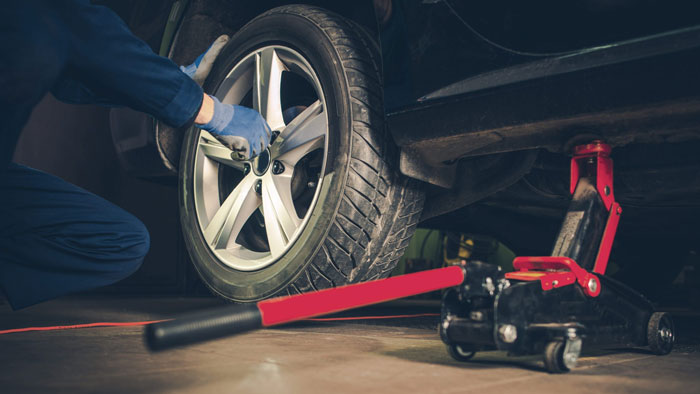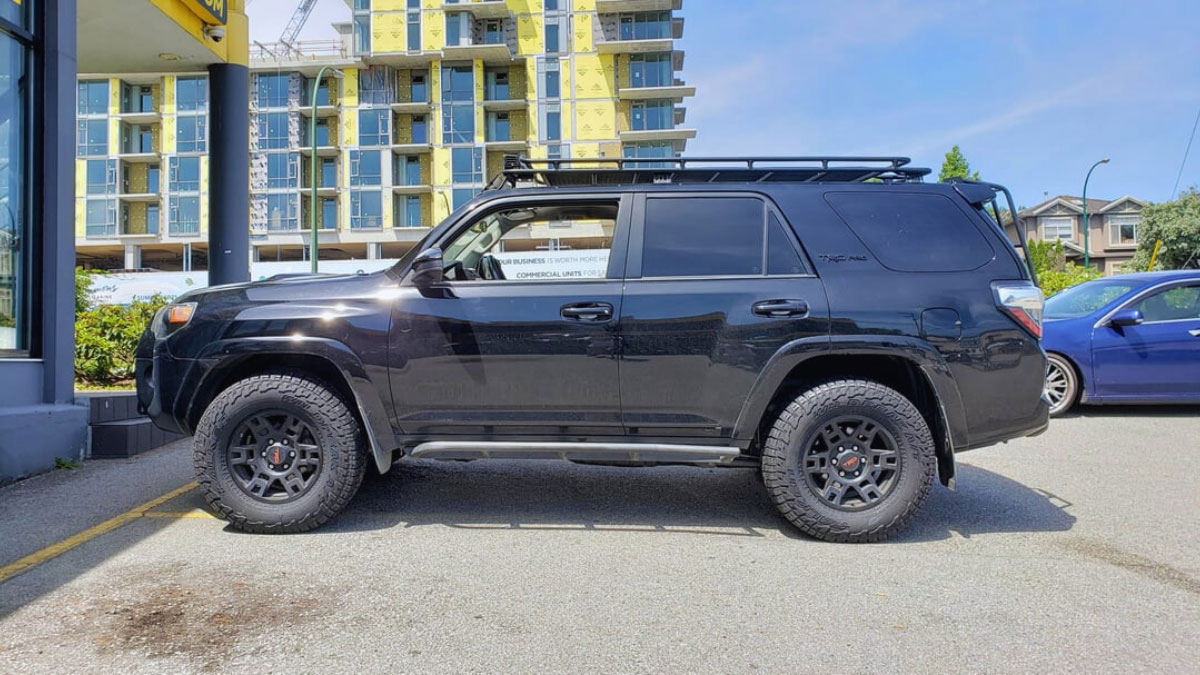Ever rotated your car tires only to hear an unsettling noise afterward? You’re not alone. Many drivers experience unexpected sounds post-rotation and wonder what’s causing them. This issue can be baffling and frustrating, especially if you thought tire rotation would smooth things out.
In my experience, various factors could be at play, from uneven tire wear to alignment issues. Understanding these potential causes can help you pinpoint the problem and find a solution. Let’s investigate into why your car might be making that annoying tire noise and how to address it effectively.
Common Causes of Tire Noise After Rotation
Rotating car tires is essential for ensuring even tire wear and prolonging tire life. But, sometimes strange noises can be heard after rotation. Understanding the common causes helps in identifying and fixing the issue.

Uneven Tire Wear
Uneven tire wear means the tread on the tires isn’t worn down uniformly. This can result in noises such as humming or thumping. Various factors contribute to uneven tire wear:
Causes of Uneven Tire Wear:
- Misalignment: When the wheels aren’t aligned correctly, some sections of the tire tread wear down faster.
- Improper Inflation: Over-inflated tires will wear more in the center, while under-inflated tires wear more on the edges.
- Suspension Issues: Worn or damaged suspension components can cause uneven wear.
Checking the tread depth and pattern regularly and maintaining proper tire pressure may mitigate this issue.
Improper Alignment
Improper alignment occurs when the wheels are not set to the manufacturer’s specifications. This can cause the car to make noise after tire rotation.
Signs of Improper Alignment:
- Vehicle Pulls to One Side: This is a clear indicator of alignment issues.
- Steering Wheel Vibration: Misalignment often causes the steering wheel to shake or vibrate.
- Irregular Tire Wear Patterns: Checking for uneven tread wear can also point to alignment problems.
Correcting the wheel alignment involves adjusting the angles of the tires, which include camber, toe, and caster, to ensure they meet manufacturer specifications.
Incorrect Tire Pressure
Incorrect tire pressure can cause tires to make noise after rotation. Both over-inflation and under-inflation can lead to various issues.
Effects of Incorrect Tire Pressure:
- Increased Tire Wear: Incorrect pressure makes tires wear out unevenly.
- Poor Handling: The vehicle may become less stable and harder to control.
- Reduced Fuel Efficiency: Over-inflated or under-inflated tires can affect fuel economy.
Regularly checking and maintaining the recommended tire pressure helps avoid these issues.
Action Points
If hearing tire noise after rotation, immediately inspect for uneven tire wear, improperly aligned wheels, and incorrect tire pressure. Addressing these common causes often resolves the issue, ensuring a smoother and quieter ride.
Diagnosing the Noise
Troubleshooting tire noise after rotation starts with careful observation. Identifying and understanding the specific sounds and inspecting the tires thoroughly helps in pinpointing the exact cause.
Listening for Specific Sounds
Recognizing the type of noise that emanates from tires is crucial. Different noises can indicate different issues:
- Whirring Sound: Often due to improper wheel balancing.
- Squeaking or Chirping: Might signal uneven tire wear or alignment issues.
- Thumping or Bumping: Likely results from a tire deformity or suspension problem.
When diagnosing noises, listen at different speeds and on various road surfaces. If the sound diminishes at a higher speed, misalignment or unbalanced wheels could be the cause.
Inspecting Tire Tread
Examining tire tread can reveal much about your car’s condition:
- Uneven Wear Patterns: Suggest alignment issues or incorrect tire pressure. Check for scalloping, cupping, or feathering.
- Tread Depth: Measure using a tread depth gauge. Insufficient tread can lead to excessive noise.
- Embedded Objects: Inspect for nails or debris which might cause noise and even lead to punctures.
Regular inspection and maintenance extend tire life and ensure safer driving conditions.
Checking Wheel Balancing
Unbalanced wheels often result in noticeable noise and uneven tire wear. Here’s how I’d check for balancing issues:
- Observation: Look for visible imbalance like wobbling wheels.
- Professional Inspection: Visit a technician to use balancing machines.
- Post-Rotation Check: Ensure wheels remain balanced after rotation services.
Balancing issues, if unchecked, can lead to more significant vehicle problems aside from the noise.
To maintain optimal performance for your vehicle, it’s essential to listen for specific noises, inspect tire treads, and check wheel balancing regularly. Identifying these problems early on helps prevent costly repairs and ensures a smoother ride.
Solutions and Remedies
If I’ve noticed tire noise after a rotation, there are specific remedies to address the issue efficiently. For each potential problem, there’s a corresponding solution. Below are detailed steps and actions.
Correcting Alignment
Proper alignment ensures tires wear evenly and reduces noise.
- Inspection: I check for signs of misalignment, such as uneven tire wear or the car pulling to one side.
- Professional Adjustment: I take the car to a professional. They use precise equipment to adjust the angles of the wheels according to manufacturer specifications.
- Regular Monitoring: I schedule regular alignment checks during routine maintenance to prevent future issues.
Adjusting Tire Pressure
Correct tire pressure improves tire performance and reduces noise.
- Manual Check: Using a reliable gauge, I check the tire pressure when the tires are cold.
- Manufacturer Specifications: I refer to the car’s manual or driver-side door placard for the recommended pressure levels.
- Inflation: If the pressure is low, I inflate the tires to the correct levels. For overinflated tires, I release air until achieving the right pressure.
- Routine Monitoring: Bi-weekly pressure checks help me maintain optimal tire performance.
Professional Tire Balancing
Proper balancing ensures smooth tire rotation and reduces noise from uneven wear.
- Symptoms: If I feel vibrations or hear noise, I consider tire balancing.
- Service: I visit a tire shop where professionals can balance the tires using special equipment. They’ll add weights to the wheel to ensure even distribution.
- Routine Rebalancing: Performing this during regular tire rotation helps maintain balance and prevent noise.
Taking these measures helps address tire noise issues after rotation and maintains optimal car performance. Ensuring regular checks and professional adjustments gives me peace of mind on the road.
Preventive Measures
Addressing tire noise post-rotation involves several preventive measures to ensure optimal performance and safety.
Regular Tire Maintenance
Regular tire maintenance plays a crucial role in preventing tire noise.
Key Activities:
- Tire Rotation: Rotating tires every 5,000-8,000 miles ensures even wear.
- Tire Balancing: Balancing tires during rotations can prevent vibrations and noise.
- Alignment Checks: Misalignment leads to uneven wear, causing noise. Regularly check and correct alignment.
Routine Inspections
Routine inspections can catch potential issues early.
Inspection Steps:
- Visual Inspection: Examine tires for uneven wear, bulges, or punctures.
- Tread Depth Measurement: Use a tread depth gauge to ensure tread depth is within manufacturer’s recommendations.
- Pressure Check: Use a tire pressure gauge to maintain optimal pressure as per the vehicle’s manual.
Professional Checks
Professional checks provide expert insights and solutions.
- Wheel Alignment Service: Professionals use precise equipment to align wheels.
- Tire Balancing Service: Experts can balance tires to manufacturer specifications.
- Comprehensive Inspections: Regular visits to a professional can uncover issues unnoticed during routine checks.
Taking these preventive measures ensures reduced tire noise and extends tire life, promoting a smoother and safer driving experience.
Conclusion
Tire noise after rotation can be unsettling but understanding the root causes and taking timely action can make a significant difference. By diagnosing the specific sounds and addressing issues like alignment and tire pressure, you can effectively reduce unwanted noise. Regular maintenance and professional inspections are key to ensuring your tires remain in good condition. Keeping up with these practices not only minimizes tire noise but also enhances your car’s overall performance and safety. Remember to stay proactive with tire care to enjoy a smoother and quieter ride.
Frequently Asked Questions
Why does my car make noise after rotating tires?
Noise after tire rotation can result from uneven tire wear, improper inflation, misalignment, or suspension issues. Identifying the specific sound—whirring, squeaking, or thumping—can help diagnose the problem, which might require professional balancing or alignment correction.
How can I identify the cause of tire noise?
Listen carefully for specific sounds. Whirring might indicate improper wheel balancing, squeaking can point to alignment problems, and thumping may suggest tire deformities. Understanding these sounds helps in diagnosing and addressing the issue efficiently.
What can I do to reduce tire noise after rotation?
Addressing tire noise may involve correcting wheel alignment, adjusting tire pressure, and ensuring proper tire balancing. Regular maintenance, such as routine inspections and tire checks, can also help prevent noise and extend tire life.
Is professional assistance necessary for fixing tire noise?
Yes, professional services for wheel alignment, tire balancing, and comprehensive inspections are recommended. Experts can accurately diagnose and fix issues, ensuring a smoother and safer driving experience while reducing tire noise.
Why is regular tire maintenance important?
Regular tire maintenance, including tire rotation, balancing, and alignment checks, helps catch potential issues early. It ensures reduced noise, extends tire life, and improves overall car performance and safety.

